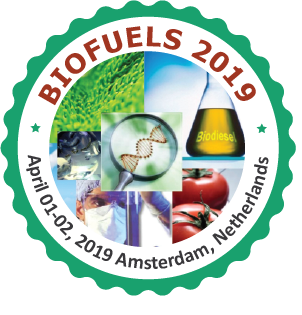
Prince Essel
Maiseville Group, Ghana
Title: Biodiesel production from non-edible feedstock – moringa oleifera /Drumstick
Biography
Biography: Prince Essel
Abstract
Current energy crisis, a rise in petroleum prices and concerns about our nation’s energy security have generated a renewed interest in renewable and sustainable energy resources. In addition to the economic, energy and social reasons, the renewable/ sustainable energy sources are also considered as possible solutions for a long-term problem: the need to combat global warming. This phenomenon, caused and aggravated by the emission of harmful gases into the air (notoriously CO2) is the result of the intensive use of fossil fuels. Therefore, substituting these fossil fuels for renewable fuels creates opportunities for economic and social development, reduces the environmental impacts, and increases the energy security of the country. Ghana’s climate and geographic location make it well suited to become a major player in Africa’s biofuels industry.
The process of a chemical reaction which involves alcohol, such as methanol or ethanol, into which catalysts are added such as sodium hydroxide or potassium hydroxide. The mixture is blended into the vegetable oil causing a chemical reaction called Transesterification which separates the vegetable oil into components. One component is a heavier liquid called glycerol (also called glycerine). Glycerol has many food and industrial uses however; glycerol from biodiesel production requires purification before it could be used for these purposes. The second component is called an ester of the oil or biodiesel. Biodiesel can also be produced from both edible and non-edible vegetable oils but the use of edible vegetable oils for biodiesel production has a major concern globally as the demand for food rises worldwide. This has resulted in sustainability issues on forest reserves and biodiversity imbalance as there are threats of deforestation with large scale production of Biofuels. In addition, the cost of edible vegetable oil feedstock supplies is inevitably high which account for more than 80% of the entire biodiesel production cost as well as their demand as food sources have turned the world’s attention to the search of alternatives in potential non-edible vegetable oil feedstocks such as Moringa Oleifera or otherwise known as drumstick.
The Moringa Oleifera has a higher recovery and quality of oil than comparable energy crops and has no direct competition for food crops as it is a non-edible vegetable oil source of fuel. The research is currently on-going and results will be discussed later.

